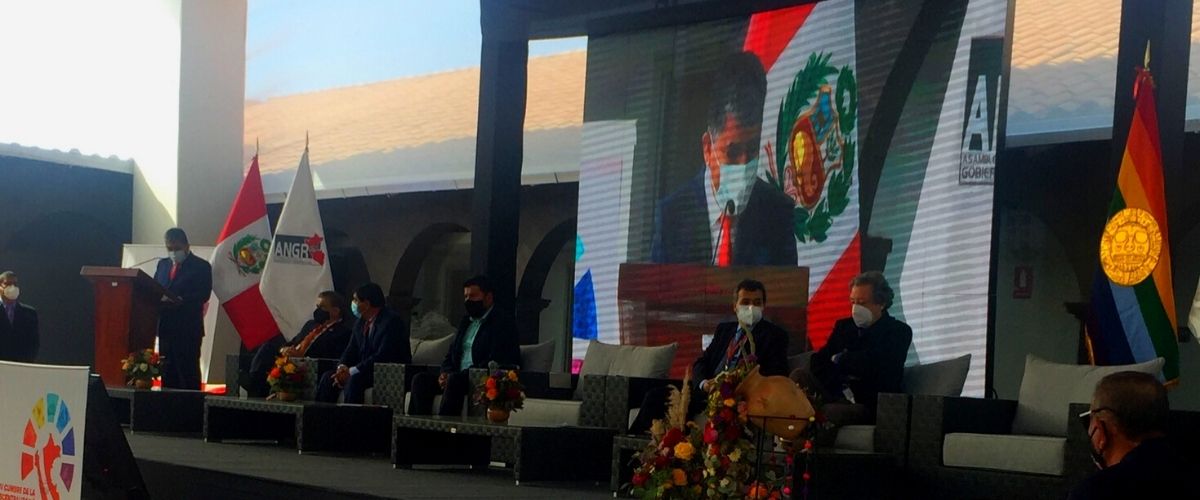The governors of Peru demand urgent decentralization

During the IV Decentralization Summit, held in Cusco on June 24 and 25, and after verifying that in recent years the decentralization process has advanced very little, the Peruvian governors agreed on a decentralization agenda for the next five years. The event was held within the framework of the Bicentennial of Peru and in a very peculiar political circumstance: after verifying his victory, the National Electoral Board had not proclaimed Pedro Castillo as president of Peru. Thus, the Summit ended up debating the plan that the National Assembly of Regional Governments, ANGR, should present to the new president.
The host, the governor of Cusco, Jean Paul Benavente, demanded a policy that guides and consolidates the decentralization process. The president of ANGR, Carlos Rua, confirmed this claim stating that the decentralization agenda should become a "national agenda." "It cannot be —he affirmed— that after 200 years of the Republic, in some territories of Peru, 5 out of 10 children still suffer from anemia." He denounced that the central government is duplicating functions that are already being covered by the regional governments, or that, in order to comply with the national budget, some transfers would reach the regions until December 31.
Carlos Rua, also governor of Ica, was the first of the governors to express his complaint about the neglect they have faced during the pandemic. "We have stood up, however, to defend our people." Juan Tonconi, governor of Tacna and president of the Mancomunidad Macro Sur, affirmed that COVID-19 "haw exposed the reality of the country." He explained that, despite the WHO claiming that 6% of GDP must be dedicated to health, in Peru it is only 2.2%. He thus called for an effective economic and fiscal decentralization. Who was more forceful, however, was the governor of Loreto, Elisban Ochoa, who explained that, in his region, an immense Amazonian territory, not a single oxygen plant has arrived from the central government. It has been the region that has achieved the 18 plants that have made it possible to tackle the pandemic. All the participants in the summit demanded a quick vaccination.
In their conclusions, the governors rejected a policy of deconcentration, in favor of a true decentralization. They demanded predictable policies, with clear rules and sufficient budgets. On many occasions, attention was drawn upon the practice of going to "beg to the offices of Lima" and the "naysaying" of the central bureaucratic apparatus towards the territories. With great unanimity, all voices demanded that the Bicentennial was the occasion to bury the centralism and rise an imminent change of government; the propitious opportunity to undertake the pertinent reforms.
The president-elect, Pedro Castillo, who closed the IV Summit, unreservedly committed himself to decentralization, which "allows the state to overcome the deep abandonment of Peru." He showed complete complicity with ANGR and affirmed: ”it is not possible that, of the total budget, 70% remains in Lima, 18% is delivered to regional governments and 12% to municipalities." He promised that the percentages would be the other way around, in order to meet the needs of citizens. The president of ANGR, Carlos Rua, urged the National Electoral Board not to further delay the proclamation of Pedro Castillo as the Peruvian president.








































































